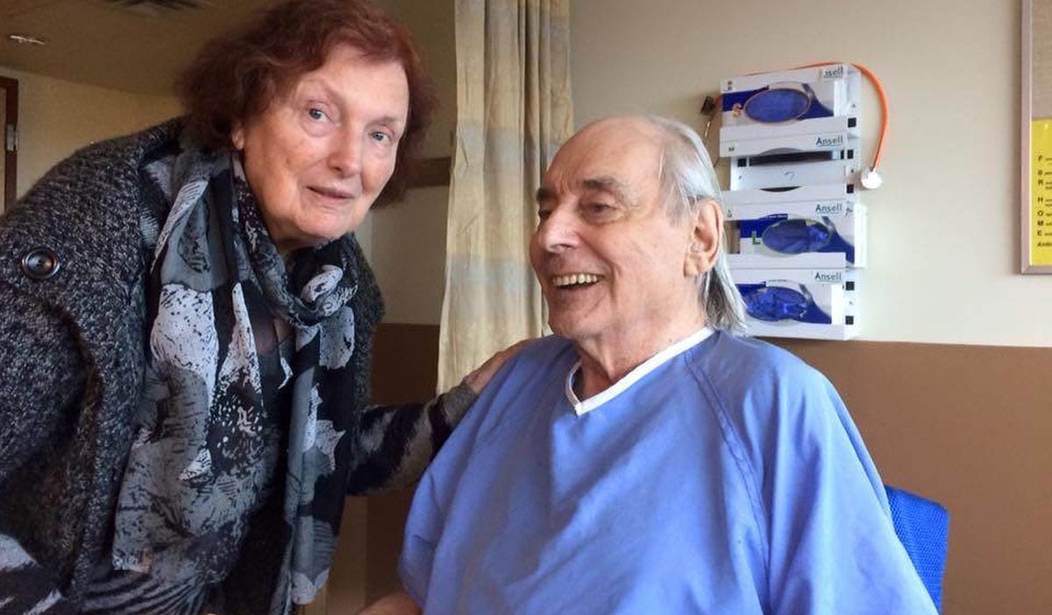An elderly Canadian couple who’ve been married 62 years are being forced to live in separate nursing home facilities because a backlog in the Canadian health care system has made it impossible to move Wolf Gottschalk out of the transitional nursing home where he currently lives into the care facility where his wife Anita is living.
In the meantime, Bartyik drives Anita the 30 minutes from her Surrey, British Columbia, care complex to Wolf’s every other day so she can see her ailing husband. The visits always end in tears for the couple, Bartyik said.
She posted a photo on Tuesday of Anita and Wolf weeping as they said goodbye — and explained that the situation had become even more desperate.
“Today he was diagnosed with lymphoma. Besides that limiting his time and making this more urgent, his dementia is growing ever stronger each day, but his memory of my grandmother has not faded a inch…yet,” she wrote.
The heart-wrenching photo has since been shared more than 5,600 times. Bartyik told NBC News she hopes it will attract the attention of policymakers, who can help not just her grandparents, but other elderly Canadians who are waiting for subsidized beds.
“We’re going through the system blind. It’s not something you’re ever taught to navigate,” she said.
The ordeal began in January, when Wolf was hospitalized for congestive heart failure, and then moved to Yale Road Centre, a transitional facility where the average stay is between 4 and 12 weeks, according to Fraser Health Authority. But after being hospitalized twice more for heart problems, Wolf kept getting bumped to this bottom of the wait list to go to a long-term care facility, Bartyik said. Health workers deemed him too ill to go home to his wife Anita.
Then two months ago, Anita, 81, who has a pacemaker, moved into an assisted living complex at the Residences at Morgan Heights. The complex is set up for residents with varying health needs, and Bartyik has been trying to get her grandfather moved there, even if in a different wing.
“My grandfather needs more complex care, so he will have a nurse with him, whereas my grandmother doesn’t need that,” Bartyik said. “Morgan Heights offers both under the same roof. She could tuck him into bed at night and then go back to her room.”
Sounds like the VA on steroids. The inherent problems with any huge system run by the state is that there is absolutely no motivation for anyone to excel. So instead of managers vying to be efficient and creative employees, they do the bare minimum of work and make the smallest effort they can get away with to keep their jobs.
Of course, there are exceptions. Some people genuinely care about their jobs and the people they service. But we’re dealing with the one thing that eludes the statists who support government-run healthcare: human nature. Government workers, like most of us, need some kind of incentive to perform our duties adequately. In the private sector, fear of being fired for incompetence or laziness is a wonderful inducement to success. Bonuses and the promise of advancement are also good motivators.
But it’s almost harder to fire a government employee than land a man on the moon. And there’s little reward for working harder, or more efficiently.
If there were, there wouldn’t be a backlog of cases that are currently keeping the Gottschalks apart.











Join the conversation as a VIP Member